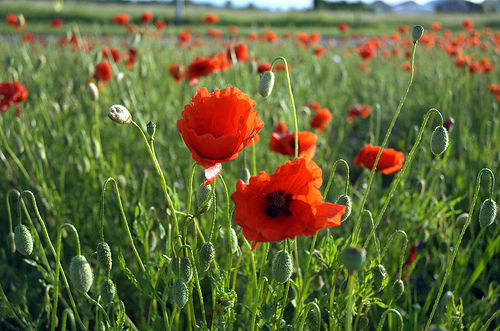
Why We Must Remember
Hugh Bassett comments on ULU’s Remembrance Day decision

Today came the sad news that The University of London Union has decided to ban its officers from attending a Remembrance Sunday service this year. Sad, because it is a triumph of personal agenda and naïve misunderstanding over basic human compassion.
Representatives are meant to represent. This sentence may sound simplistic, but it’s a fact that too few seem able to remember currently. Student politicians often bemoan that the government ‘doesn’t listen to the people’ and therefore is out of touch and irrelevant. Yet somehow they continually believe that a tiny group of high-achieving, over-principled students are adequately equipped to act on behalf of the majority they represent.
The people who are most likely to attain power, in any situation, are the ones least likely to fully understand the needs of the general populace, whether they are over-privileged Eton alumni, or twenty-something idealists with a good knowledge of Union procedure.
Part of the responsibility of power is putting personal wants and beliefs aside for the good of your organization. It is a difficult task, but one that has to be overcome in order to be a good leader. If a person is entirely unable to do this, it would indicate they have only taken the role for personal fulfillment. Unfortunately, ULU have proved with this decision that they remain the latter.
The imminent dissolution of the Union is testament to how little the officers within the organization truly understand the desires of their exceedingly large student body. The backlash against this decision will only demonstrate this further.
Issues of representation aside, the real crux of why this move is so provoking is that the individuals involved have let their private convictions cloud their judgment when considering the issue of Remembrance Day.
ULU President Michael Chessum stated that he does not wish to “stand next to war criminals like Tony Blair on plinths, pretending that these acts are ‘triumphant’.” His thought reflect the words of the motion itself, which told us that such services “glorify and justify Britain’s role in world politics and British militarism.”
Well no, not really.
There is an unbelievably tiny amount of people, from any strata of society, that attend a Remembrance service with any ideas of glorification and justification. Most are there, as any clear-headed individual would assume, in order to remember the millions who died in two detrimental World Wars.
People go to these services out of respect for those who did something so impossibly hard we could never even dream of it, sat around in our comfy rooms with our lofty ideas about the world.
The people who died in these wars did not have time to congratulate themselves on the shiny theories they produced from the books they think they should read, because they were thrown into a situation so horrific it deserves to be remembered year after year, irrespective of your own beliefs.
These people do not warrant our remembrance because they “died for the glory of our country”, because so very often they didn’t. In our world of endless decisions, where our biggest concerns involve what cereal to buy, it’s almost impossible to imagine a situation where we could have nearly no control over whether we lived or died.
Of course, the kinds of people who banned their staff from attending the service will say that they would object, they simply wouldn’t go to war, due to their principles. That’s all well and good at our present time, where you can scurry away on the Internet and find like-minded individuals, but not a hundred years ago when the rest of your isolated village would remember your ‘cowardice’ forever.
The choice then was to die, or to be vilified by people you knew and loved. Can people honestly believe that every single man and woman out those fields was carrying around some proud notion of how great Britain’s “role in world politics and militarism” was?
Yet the Union statement did actually acknowledge this, in a way. It went on to include “the treatment of British soldiers by the military command”. It’s a shame however that they did not think of the full significance of this.
The motto of the Remembrance service is “Lest we forget.” This does not mean that we might forget how fantastic Britain is at killing, it’s lest we forget the atrocities of this period of history, and seek to ever be involved in such a war again. The services, for the vast majority, actually stand for what the Union claims to. An attendance by an officer, on behalf of the students, could in fact be an act of defiance against the cause of indescribable pain and suffering. It’s a display of empathy for those people who didn’t have a choice.
Refusing an elected individual this opportunity is a confused and blinded decision, and one that no student should accept, whichever side of the debate they stand on.









































